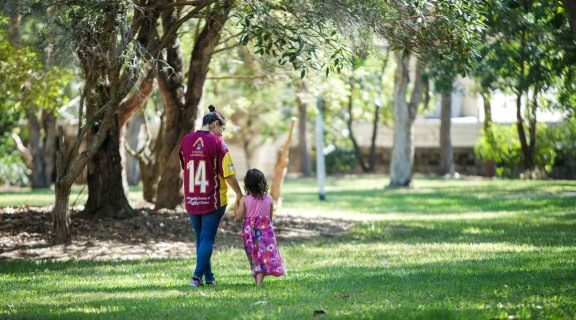
Helping children express their emotions
10 February 2021 | State Library of Queensland
Sometimes everyday life can be a little overwhelming for children. Very young children and toddlers don’t have the words to communicate, so they often find it hard to express their feelings and the easiest way to show you how they feel might be through a tantrum.
Help your little one understand their feelings by using words to describe or express these complex emotions they feel. “I can see that you are angry because your blocks keeps falling over” or “Sometimes I feel sad too and I cry. Can I give you a cuddle to make you feel better?” When children can use words to express themselves it allows them to ask for help or comfort before they become too upset.

Helping your child learn to describe their feelings can also help to avoid tantrums or help you to understand what's behind them.
You might also like to sing “If you’re happy and you know it” with your child, you can change the words and actions with different emotions like “If you’re cranky and you know it stamp your feet” or “if you’re sad and you know it have a cuddle.” This way, in calmer times, you can prepare your child with actions and language to help then express and manage their emotions when the feelings occur.
The more words they have available to tell you what’s upsetting them, the easier your job is to understand and manage their reactions. This doesn’t solve every tantrum, but it can make them easier to deal with!
Books that deal with or explain emotions
Happy hippo, angry duck by Sandra Boynton
When I’m feeling angry by Trace Moroney
Today I feel by Maddalena Moniz
In my heart by Jo Witek
Baby faces by Kate Merritt
When Sophie gets angry – really, really angry by Molly Bang
Llama llama mad at Mama by Anna Dewdney
Comments
Your email address will not be published.
We welcome relevant, respectful comments.